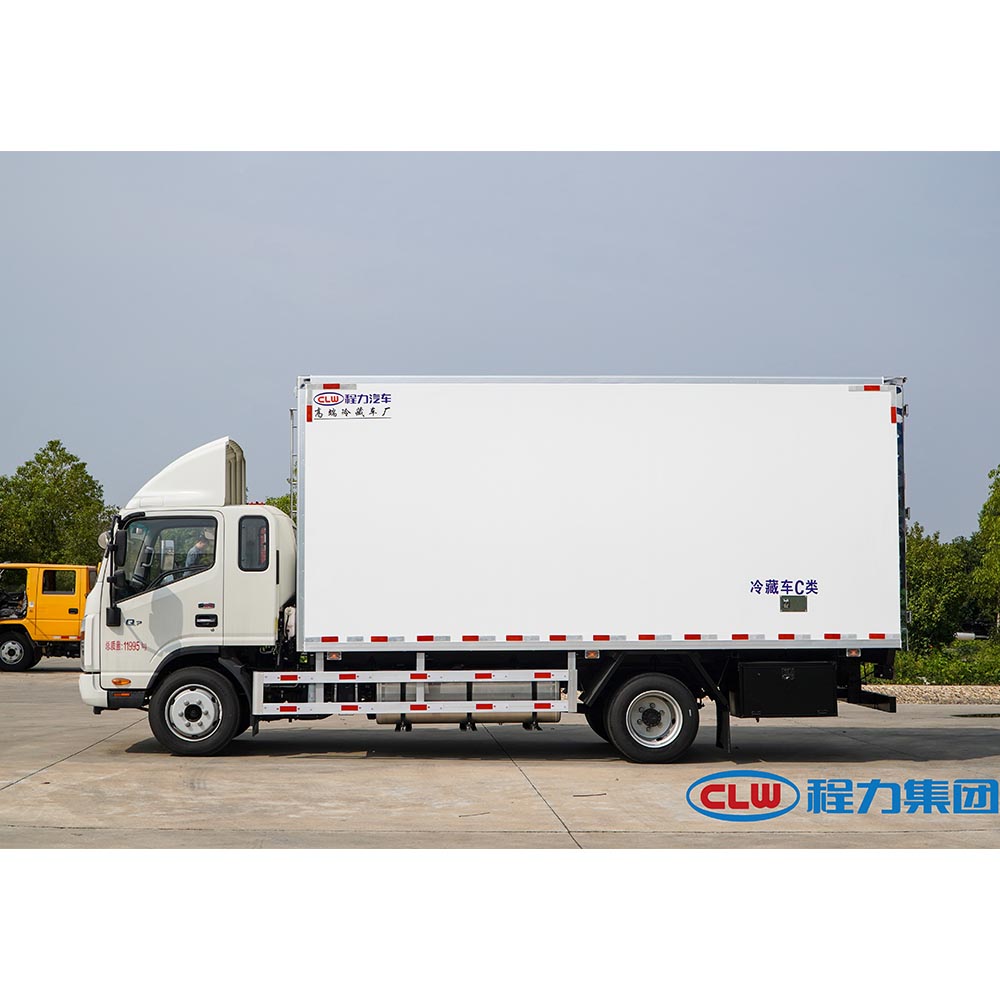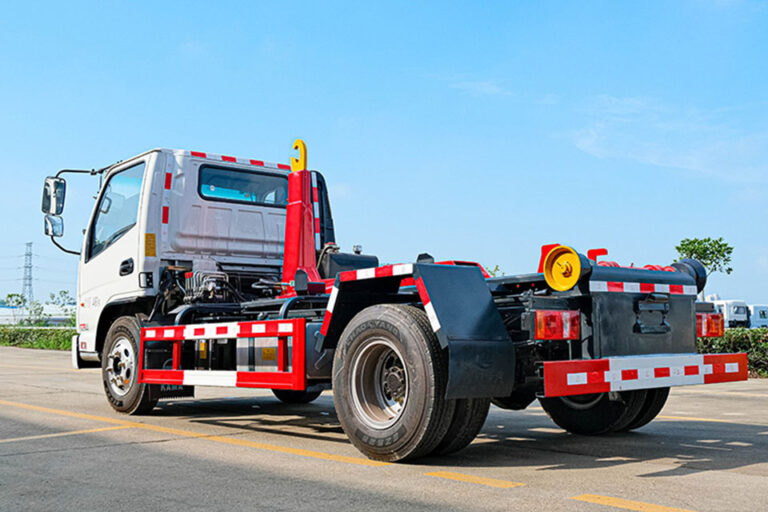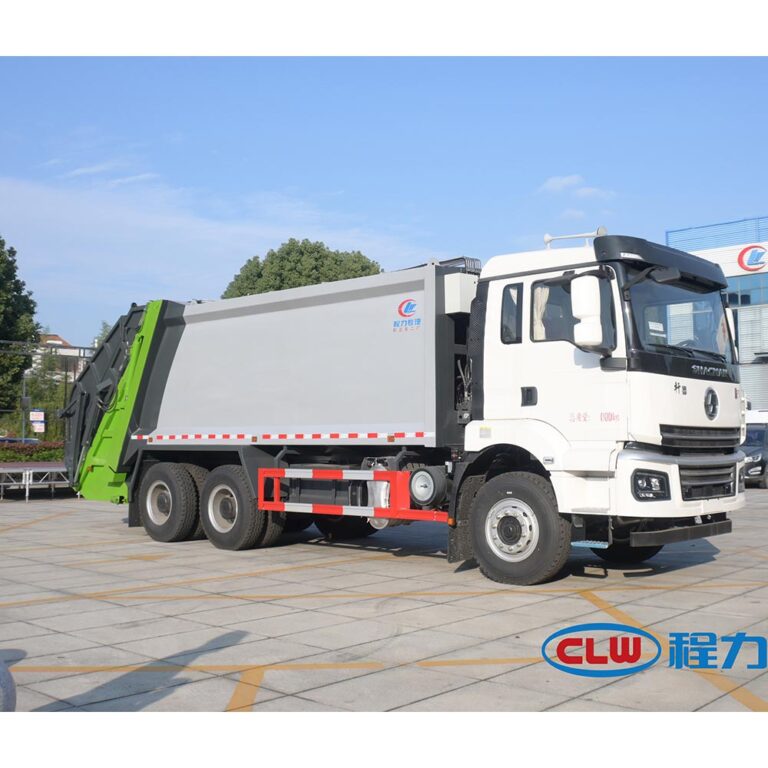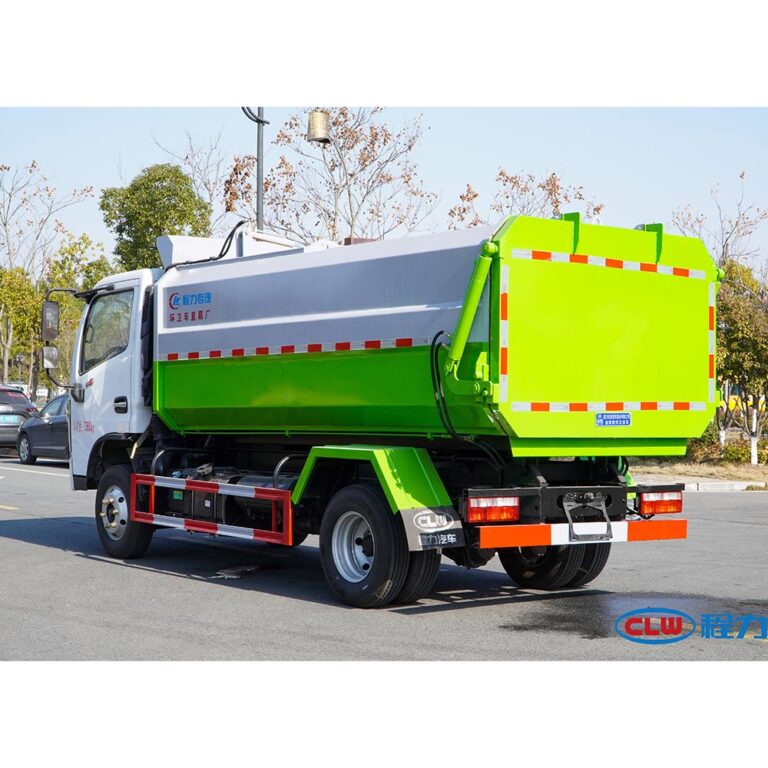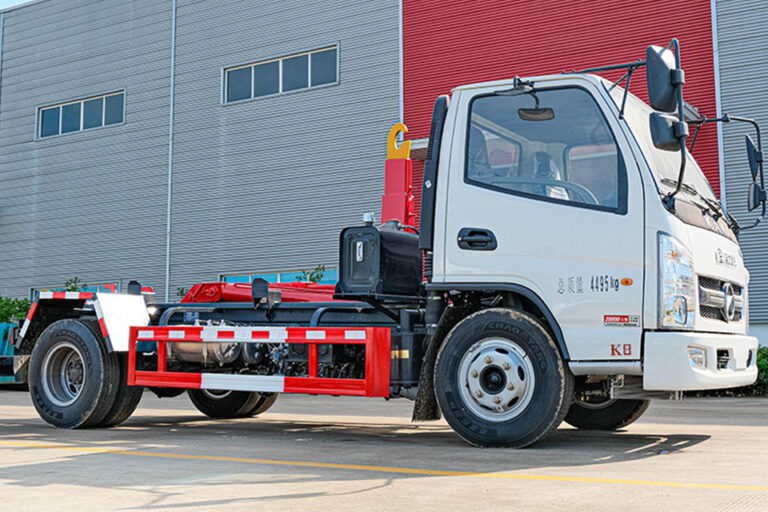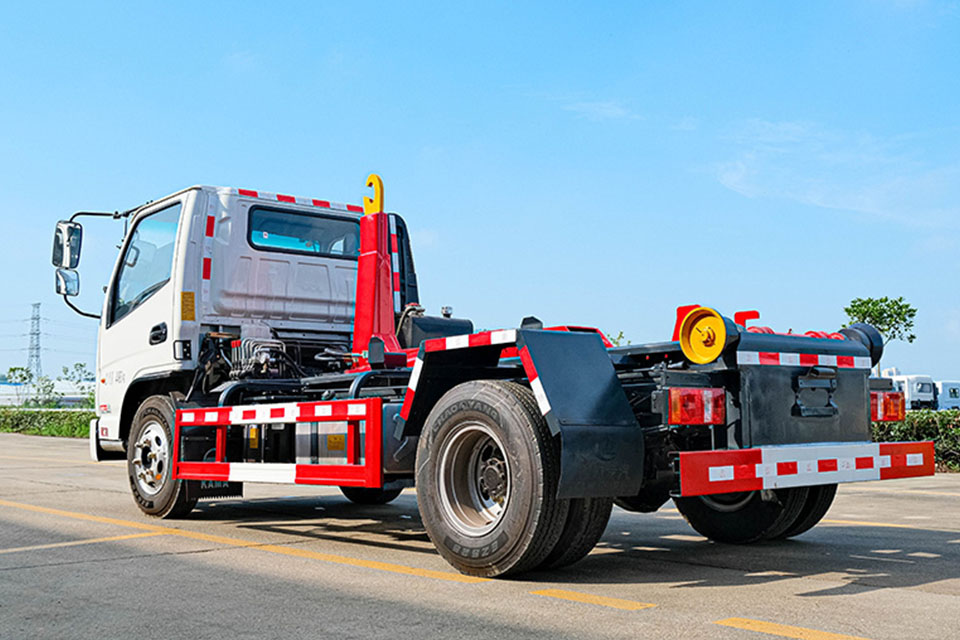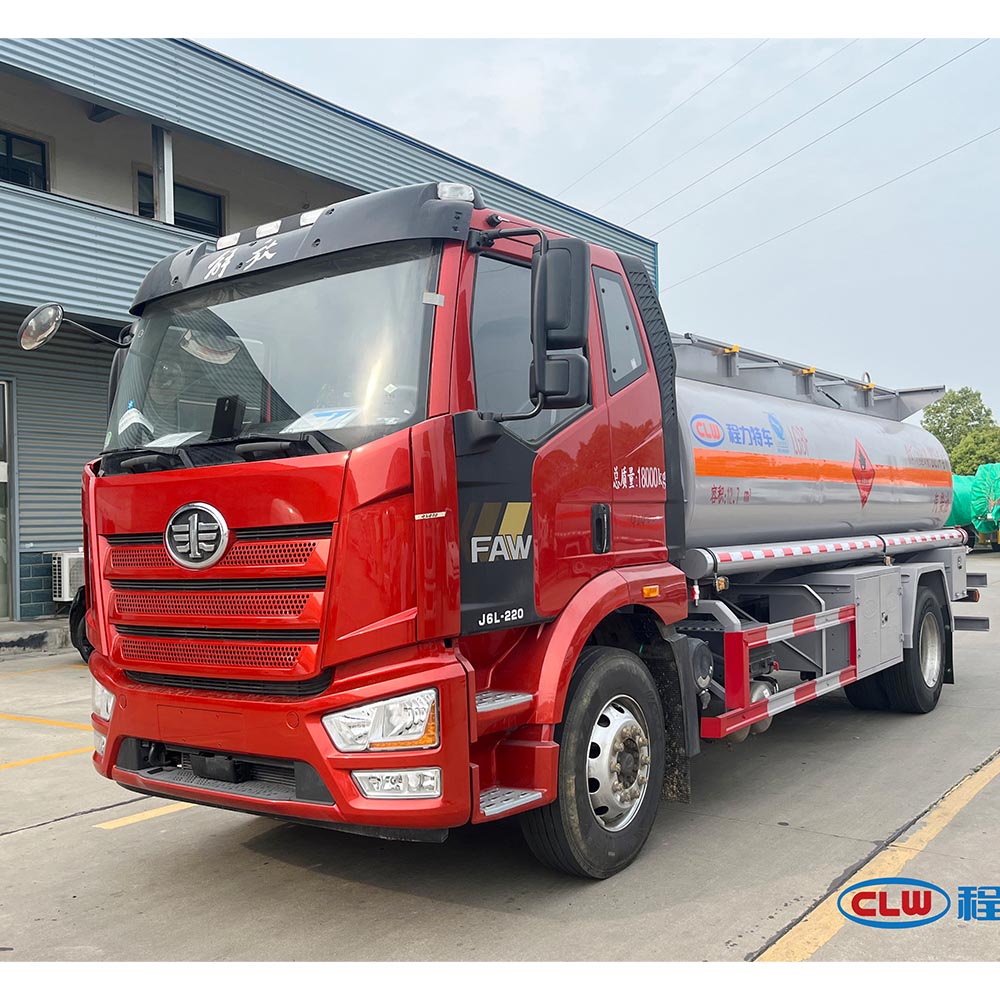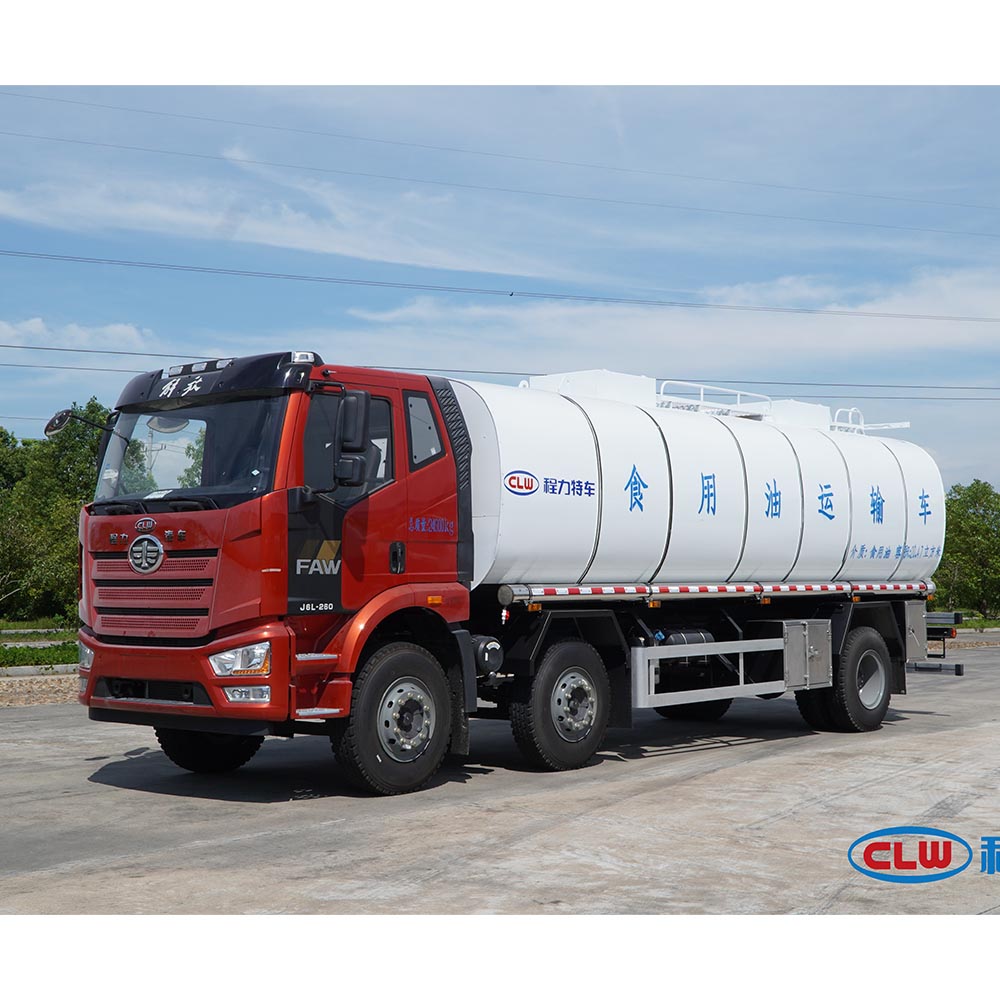-
Parc industriel automobile de Chengli

Combien coûte l'achat d'un camion commercial ?
Combien coûte un semi-remorque ? Dévoiler le véritable prix de l'énergie commerciale
Cet article plonge dans le monde du commerce et de l'industrie. camion la tarification, en explorant la myriade de facteurs qui influencent le coût d'acquisition d'un produit. semi-remorque. Que vous soyez un vétéran de la logistique ou un nouveau venu dans le secteur, il est essentiel de comprendre le paysage financier. Ce guide vous guidera à travers les complexités de la logistique. camion des achats, bauxet tout ce qui se trouve entre les deux, ce qui vous permet de prendre une décision éclairée qui correspond aux objectifs de votre entreprise et à votre budget. Il vaut la peine d'être lu car il fournit une vue d'ensemble des coûts associés à semi-remorquesLe programme d'aide à l'emploi vous permet de planifier et de budgétiser efficacement.
Table des matières
1. Quels sont les facteurs qui influencent le prix des semi-remorques ?
En tant qu'entreprise commerciale de premier plan camion je peux vous dire de première main que de nombreux éléments contribuent au prix final d'un produit. semi-remorque. Ces facteurs sont les suivants :
- Marque et modèle : Comme pour les voitures, il existe des camion Les prix varient en fonction des marques et des modèles. Les marques haut de gamme ont souvent un prix plus élevé en raison de leur réputation de fiabilité et de leurs caractéristiques avancées. Le modèle spécifique que vous choisissez, qu'il soit conçu pour de longues périodes de temps ou pour une utilisation prolongée, est également important. transporter ou des tâches lourdes, a également une incidence sur le coût.
- Neufs ou d'occasion : A nouveau camion offre les technologies les plus récentes, une couverture de garantie et, souvent, de meilleures conditions de travail. efficacité énergétique. Toutefois, un camion d'occasion peut être une option économique, en particulier pour ceux qui débutent dans l'industrie. A camion d'occasion offre un service de qualité prix inférieur et peuvent également se caractériser par des coûts d'assurance moins élevés. Lors de l'achat d'un camion semi-remorque d'occasionIl est donc essentiel d'inspecter minutieusement le véhicule et d'examiner son historique d'entretien.
- Spécifications : Les du camion la taille du moteur, la puissance, le type de transmission, la configuration des essieux et d'autres spécifications jouent un rôle crucial dans la détermination de son prix. A camion doté d'un moteur puissant capable de transporter de lourdes charges coûtera généralement plus cher qu'un modèle standard.
- Personnalisations : Toute fonction supplémentaire ou personnalisation, telle que la mise à niveau de l'appareil. dormeur cabines, des systèmes de sécurité avancés ou des équipements spécialisés. coût du camion.
- Conditions du marché : Dynamique de l'offre et de la demande dans les camion L'offre et la demande sur le marché peuvent également influer sur les prix. Lorsque la demande est élevée et l'offre faible, les prix ont tendance à augmenter, et inversement.
- Marge bénéficiaire du concessionnaire : Les concessionnaires doivent faire des bénéfices, c'est pourquoi ils ajoutent généralement une majoration au prix de vente conseillé par le fabricant.
- Prix d'achat: Lorsque vous acheter un camion, le prix d'achat représente une part importante du coût total. Les prix d'achat du camion est déterminé par la valeur marchande, l'état et la demande de ce modèle spécifique.
2. Combien coûte un nouveau semi-remorque ?
A nouveau camion semi-remorque coûte généralement entre $130 000 et $200 000 ou plus. Toutefois, il ne s'agit là que d'un point de départ. Les modèles haut de gamme dotés d'équipements haut de gamme et de moteurs puissants peuvent facilement dépasser les $250 000.
En tant que camion j'ai vu de mes propres yeux comment les investissements dans les technologies de pointe et les matériaux de première qualité ont un impact sur le produit final. prix d'un camion commercial.
Voici une ventilation des coûts potentiels :
| Fonctionnalité | Fourchette de prix |
| Modèle de base | 130,000-130,000- 160,000 |
| Modèle haut de gamme | 170,000-170,000- 250,000+ |
| Systèmes de sécurité avancés | 5,000-5,000- 15,000 |
| Cabine couchette améliorée | 10,000-10,000- 30,000 |
Nouveaux camions sont assortis de l'avantage de la technologie la plus récente, de la couverture de la garantie et, éventuellement, d'un meilleur prix. efficacité énergétique. Cependant, ils se déprécient rapidement au cours des premières années.
3. Quel est le prix moyen d'un semi-remorque d'occasion ?
Achat d'un camion d'occasion peut être un excellent moyen d'économiser de l'argent. Un véhicule bien entretenu camion semi-remorque d'occasion peut aller de $40 000 à plus de $100 000, en fonction de son âge, de son état, kilométrageet les spécifications. Des facteurs tels que la marque, le modèle et les caractéristiques installées influencent considérablement le prix d'un produit. camion d'occasion.
C'est pourquoi j'insiste toujours sur la nécessité d'effectuer des inspections approfondies pour camions d'occasion:
- Questions cachées : Un problème apparemment mineur peut entraîner des réparations coûteuses.
- Le kilométrage est important : Haut kilométrage peut indiquer une usure importante. Visez une camion avec un kilométrage relativement faible pour son âge.
- Registres d'entretien : Un historique d'entretien bien documenté montre que la camion a été correctement entretenu.
- Garantie: Certaines garanties sur les produits plus récents camions d'occasion peut encore être actif et peut fournir des économiser de l'argent des opportunités pour le nouveau propriétaire.
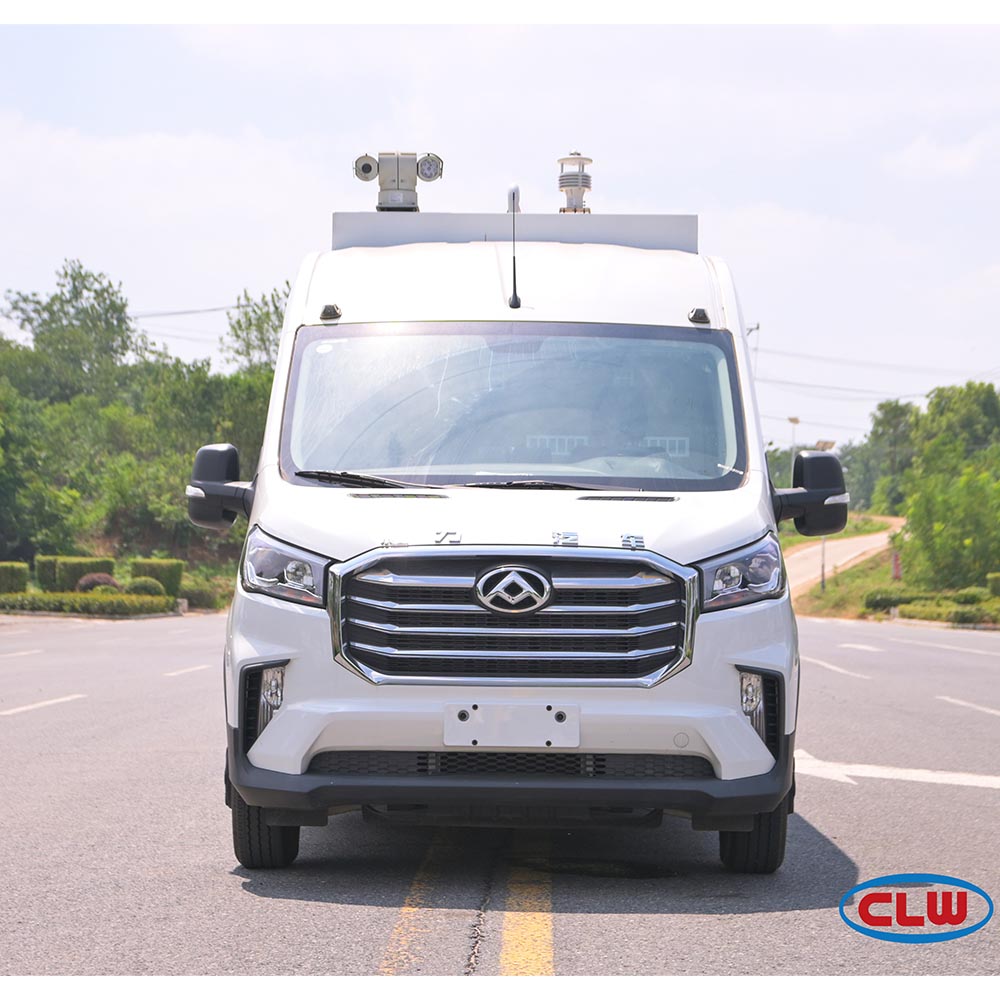
4. Faut-il acheter un camion neuf ou d'occasion ?
Décider entre l'achat d'un produit neuf ou d'occasion est une décision importante. Achat d'un nouveau camion offre plusieurs avantages :
- Dernière technologie : Nouveaux camions sont dotés des dispositifs de sécurité les plus avancés, de moteurs économes en carburant et d'équipements de confort pour le conducteur.
- Couverture de la garantie : Les garanties des fabricants offrent une tranquillité d'esprit et une protection contre les coûts de réparation imprévus.
- Personnalisation : Vous pouvez commander un nouveau camion avec les spécifications et les caractéristiques exactes dont vous avez besoin.
Cependant, achat d'un camion d'occasion a aussi ses mérites :
- Coût initial moins élevé : Camions d'occasion sont nettement moins chers que les nouveau et libère des capitaux pour d'autres besoins de l'entreprise.
- Moins l'amortissement : Camions d'occasion ont déjà connu la partie la plus abrupte de leur courbe de dépréciation.
- Fiabilité éprouvée : Un système bien entretenu camion d'occasion avec de bons antécédents peut être tout aussi fiable qu'une nouveau un.
D'après mon expérience, achat d'un camion d'occasion est souvent un choix judicieux pour les propriétaires-exploitants ou les petites entreprises qui cherchent à minimiser les coûts initiaux. Bien qu'il s'agisse d'un nouveau camion peut coût n'importe où de 130 000 à plus de 200 000, les plates-formes de forage usagées sont généralement utilisées pour les travaux de construction. coût n'importe où de 40 000 à 100 000.
5. Quels sont les avantages de la location d'un semi-remorque ?
Location d'un semi-remorque offre une alternative à l'achat, avec ses propres avantages :
- Des coûts initiaux moins élevés : Leasing nécessite généralement une mise de fonds moins importante que l'achat, ce qui permet de prendre la route plus rapidement.
- Paiements mensuels prévisibles : Bail les paiements sont généralement fixes, ce qui simplifie l'établissement du budget.
- Accès à des camions plus récents : Leasing vous permet de conduire un nouveau camion sans l'investissement initial important que représente l'achat.
- Réduction de la responsabilité en matière de maintenance : En fonction de la contrat de locationla société de crédit-bail peut prendre en charge tout ou partie des frais d'entretien. coûts de maintenance.
Bail Les options d'achat d'actions attirent souvent les entreprises qui privilégient la trésorerie et veulent éviter l'engagement à long terme de la propriété. Toutefois, il est essentiel de comprendre qu'au moment de l'achat, les entreprises ne sont pas en mesure d'assurer leur propre sécurité financière. fin du leasing vous ne serez pas propriétaire de la camion.
6. Comment financer l'achat d'un semi-remorque ?
La plupart des acheteurs ne paient pas au comptant direct pour un semi-remorque. Les options de financement comprennent
- Prêts bancaires : Les banques traditionnelles offrent camion des prêts avec des taux d'intérêt et des durées variables.
- Prêteurs spécialisés : Plusieurs prêteurs se spécialisent dans les camion le financement, souvent avec des conditions plus souples que les banques.
- Financement du fabricant : Certains camion proposent des programmes de financement internes.
Votre score de crédit joue un rôle important dans l'obtention de conditions de financement favorables. Un taux d'intérêt score de crédit se traduit généralement par des taux d'intérêt plus bas et de meilleures conditions de prêt. J'ai vu de nombreux chauffeurs de camion bénéficier de l'amélioration de leur scores de crédit avant de demander un financement.
7. Quels sont les coûts permanents associés à la possession d'un semi-remorque ?
Au-delà de l'achat initial ou de la bail les paiements, la possession d'un semi-remorque implique plusieurs dépenses permanentes :
- Carburant : Le carburant est une dépense importante pour tout camion propriétaire. Efficacité énergétique varie en fonction de la du camion le moteur, la charge et les habitudes de conduite.
- Entretien : Régulière entretien est essentiel pour maintenir votre camion et éviter les pannes coûteuses. Les coûts d'entretien peuvent varier sur la base de la du camion l'âge, l'état et l'utilisation.
- Réparations : Inattendu réparation de camions peuvent survenir, même avec un entretien adéquat. Il est essentiel de disposer d'un coussin financier pour faire face à de tels événements.
- Assurance : Assurance camion est obligatoire et peut représenter une dépense importante, en particulier pour les nouveaux conducteurs. Des facteurs tels que votre dossier de conduite, la type de camionet la cargaison que vous hélice influence coûts d'assurance.
- Permis et licences : Exploitation d'un commerce camion nécessite divers permis et licences, y compris un permis de conduire commercial (CDL)qui s'accompagnent de frais.
Il est essentiel de comprendre ces coûts pour évaluer avec précision le coût total de possession et s'assurer que votre entreprise de transport routier reste rentable.
8. Quel est l'impact du type de camion sur son coût ?
Les type de camion que vous choisissez influe considérablement sur son prix. Voici quelques exemples :
- Taxis de jour : Ces camions sont conçus pour des itinéraires plus courts et n'ont pas de dormeur compartiment. Ils sont généralement moins chers que les dormeur camions.
- Camions couchettes : Ces camions Caractéristiques de l'appareil dormeur Ils sont dotés d'une couchette à deux places, ce qui permet aux conducteurs de se reposer pendant les longs trajets. Ils sont disponibles en différentes tailles et configurations, avec des modèles plus grands et plus luxueux. dormeurs ce qui augmente le coût.
- Camions spécialisés : Camions conçus à des fins spécifiques, tels que camions-citernes, camions frigorifiquesou camions à plate-formeLes prix sont souvent plus élevés en raison de la spécialisation de l'équipement et de la construction.
- Camions de gros tonnage : Ces camions sont construits pour hélice Ils sont équipés de moteurs puissants, de châssis renforcés et d'essieux robustes. Ils font partie des types de véhicules les plus coûteux. camions.
Choisir le bon type de camion dépend des besoins spécifiques de votre entreprise et des types de chargements que vous allez transporter.
9. Comment les propriétaires-exploitants peuvent-ils prendre des décisions judicieuses en matière d'achat de camions ?
Pour propriétaires-exploitantschoisir le bon camion est une décision critique pour l'entreprise. Voici quelques conseils :
- Définissez vos besoins : Réfléchissez bien aux types de charges que vous allez transporter, aux distances que vous allez parcourir et à vos besoins spécifiques.
- Effectuer des recherches approfondies : Comparer les différents camion marques, modèles et spécifications. Lisez les commentaires, discutez avec d'autres propriétaires-exploitantset recueillir autant d'informations que possible.
- Tenez compte du coût total de possession : Ne vous concentrez pas uniquement sur le prix d'achat. Tenez compte du carburant, entretien, réparations, assuranceet d'autres coûts permanents.
- Négocier à bon escient : N'hésitez pas à négocier avec les concessionnaires ou les vendeurs privés pour obtenir le meilleur prix possible.
- Inspecter avec soin : Si achat d'occasionFaites appel à un mécanicien qualifié pour qu'il procède à une inspection minutieuse de l'appareil. camion avant d'effectuer un achat.
- Financement sécurisé : Faites le tour du marché pour trouver les meilleures conditions de financement. Un bon score de crédit peut vous aider à obtenir des taux d'intérêt plus bas.
Prendre des décisions éclairées peut avoir un impact significatif sur votre réussite en tant que propriétaire-exploitant dans le secteur du transport routier.
10. Quel rôle jouent les scores de crédit dans l'obtention d'un financement pour les camions ?
Votre score de crédit est un facteur déterminant pour l'obtention d'une camion financement. Les prêteurs utilisent votre score de crédit pour évaluer votre solvabilité et déterminer le taux d'intérêt que vous paierez.
Voici comment cela fonctionne :
- Un meilleur score, des taux plus bas : Plus élevé score de crédit indique que vous êtes un emprunteur responsable, ce qui incite les prêteurs à vous proposer des taux d'intérêt plus bas. Cela peut vous faire économiser des milliers de dollars sur la durée du prêt.
- Un score plus bas, des taux plus élevés : Une baisse score de crédit suggère que vous êtes un emprunteur à haut risque, ce qui entraîne des taux d'intérêt plus élevés, voire un refus de prêt.
- Exigences minimales : La plupart des prêteurs imposent un minimum de score de crédit les exigences en matière de camion prêts. Ces exigences varient d'un prêteur à l'autre, mais elles sont généralement de l'ordre de 600 ou plus.
Améliorer votre score de crédit avant de faire une demande de financement peut considérablement améliorer vos chances d'être approuvé et d'obtenir des conditions favorables. En examinant régulièrement votre dossier de crédit et en prenant des mesures pour améliorer votre solvabilité, vous pouvez ouvrir la voie à un financement plus facile. camion de financement. Vous pouvez avoir besoin d'un prêt aux entreprises si vous ne disposez pas d'une score de crédit.
FAQ
Quel est le montant de l'acompte généralement requis pour l'achat d'un semi-remorque ?
Les acomptes peuvent varier considérablement, mais se situent souvent entre 10% et 25% du prix d'achat. du camion prix d'achat. Les prêteurs peuvent exigent un acompte pour atténuer leur risque.
Quelle est la durée habituelle d'un financement de semi-remorque ?
Les durées de financement peuvent varier de 3 à 7 ans, en fonction du prêteur et de la solvabilité de l'emprunteur. Des durées plus longues se traduisent généralement par des paiements mensuels moins élevés mais des coûts d'intérêt globaux plus élevés.
Puis-je acheter un semi-remorque sans permis de conduire commercial (CDL) ?
Bien qu'il ne soit pas nécessaire d'avoir un permis de conduire pour acheter une voiture de tourisme, il n'est pas nécessaire d'avoir un permis de conduire. camionVous en aurez besoin pour l'exploiter à des fins commerciales.
Quel est le coût typique de l'entretien d'un semi-remorque ?
Annuel coûts de maintenance peut aller de $15 000 à $20 000 ou plus, en fonction de l'objectif de l'entreprise. du camion l'âge, l'état et l'utilisation. Il est important de faire des recherches et de comprendre ce que vous voulez. s'attendre à payer pour l'entretien.
Quels sont les conseils pour négocier le prix d'un semi-remorque à la baisse ?
Recherche sur les du camion Si la valeur de la propriété est inférieure à la valeur marchande, soyez prêt à renoncer et envisagez de verser un acompte plus important pour renforcer votre position de négociation.
Est-il préférable de louer ou d'acheter un camion ?
Location d'un camion aura généralement un baisse mensuelle paiement. Lorsque vous acheter le camion vous aurez une mensuelle plus élevée le paiement.
Conclusion
- Comprendre semi-remorque La tarification est cruciale pour toute personne travaillant dans le secteur du transport routier commercial.
- Des facteurs tels que la marque, le modèle, le neuf ou l'occasion, les spécifications et les conditions du marché influencent de manière significative le prix des produits. camion coûts.
- Nouveaux semi-remorques offrent la technologie la plus récente et la garantie la plus étendue, mais leur prix est plus élevé.
- Semi-remorques d'occasion peuvent être une option économique, mais nécessitent une inspection minutieuse et une diligence raisonnable.
- Leasing permet de réduire les coûts initiaux et d'assurer des paiements mensuels prévisibles, mais ne permet pas d'accéder à la propriété.
- Les options de financement comprennent les prêts bancaires, les prêteurs spécialisés et le financement par le fabricant.
- Les coûts permanents tels que le carburant, entretien, réparations, assuranceet les permis doivent être pris en compte.
- Les type de camion que vous choisissez a un impact sur son prix. camions coûtant plus.
- Propriétaires-exploitants doivent faire des recherches approfondies, prendre en compte le coût total de la propriété et négocier judicieusement.
- La cote de crédit joue un rôle essentiel dans l'obtention de conditions de financement favorables. A Le coût d'un camion semi-remorque plus avec un mauvais crédit.
En tenant compte de ces facteurs et en effectuant des recherches approfondies, vous pourrez prendre une décision éclairée lors de l'achat ou de la location d'un véhicule. semi-remorqueEn tant qu'employeur, vous vous préparez à réussir dans le monde compétitif du camionnage commercial. Que vous choisissiez de acheter un nouveau ou utilisé il est essentiel de comprendre les implications financières. N'oubliez pas qu'un semi-remorque est un investissement important, et faire le bon choix peut faire toute la différence pour vous. entreprise de camionnage. Grâce aux informations fournies dans cet article, vous pouvez naviguer en toute confiance dans les complexités des camion Les entreprises doivent s'efforcer d'acquérir les compétences nécessaires et de prendre une décision qui corresponde aux objectifs de leur entreprise. Rappelez-vous, que vous soyez l'achat d'un nouveau ou achat d'occasionsachant Combien coûte un camion semi-remorque peut vous aider à prendre une décision éclairée. J'espère que cet article a répondu à la question "Combien coûte un semi-remorque ?.”
